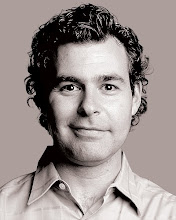Competitive-game fans want someone to admire
BY STEVE FRIESS
A few weeks ago, I was one of millions of Americans who got sucked into watching something on TV that I ordinarily would never, ever care about.
It was a Monday, I was overdue on more than one assignment—including that week’s Strip Sense entry—and I don’t usually watch sports on TV anyway. But the human drama of a hobbled Tiger Woods somehow managing one amazing comeback after another in the U.S. Open was so compelling that it even made watching privileged people using a crooked metal stick to hit a small white ball across a water-guzzlingly lush and exclusive private park worth my attention.
That said, had it not been for Tiger, such a close match with such great heroics surely wouldn’t have drawn my interest.
And that is the probably insurmountable problem that ails the World Series of Poker as its most prestigious event begins this weekend: There are no transcendent stars. What’s more, thanks to the very same factors that earlier this decade turned the WSOP into one of the fastest-growing professional competitive events— how’s that for avoiding the word “sport”?—of our time, there also never will be.
“You can’t buy your way onto an NBA court; you can’t buy your way onto an NFL field,” said Jeffrey Pollack, WSOP executive director. “You can, however, enter the World Series of Poker and potentially walk away as a world champion. We offer a brand of hope that’s more accessible than any other global sports brand.”
Well, that’s great, but where does that leave poker? Without mystique, that’s where. With nobody who has ever attained the same household-name status of a Tiger Woods, Michael Jordan or Andre Agassi. Ask any group of 55-year-old women emerging from a third viewing of Sex and the City, and they’ll all know who each is.
Ask the same people who Doyle Brunson, Phil Ivey or Johnny Chan are; very few will know. Try Joe Hachem, Jamie Gold and Jerry Yang, the most recent three multimillionaire winners of the WSOP’s $10,000 buy-in No-Limit Texas Hold ’Em tournament—aka the Main Event—and expect the blankest of stares.
Being a victim of one’s own success is a cliché, but there is no better way to explain why TV ratings have been in decline for the WSOP. The meteoric rise in the fascination with poker in general and its richest tournament in particular boiled down to the notion, borne of the boom in Internet poker that turned every Midwest frat boy and bored Silicon Valley code geek into a rounder, that everyone is equal at the table. TV poker shows became so popular even my teenage niece watched, a sure indicator of fad status.
The allure was simple: Anyone can win. Even me.
And yet here’s the problem: Anyone can win. Even whatsisname.
Read the rest HERE







0 comments:
Post a Comment